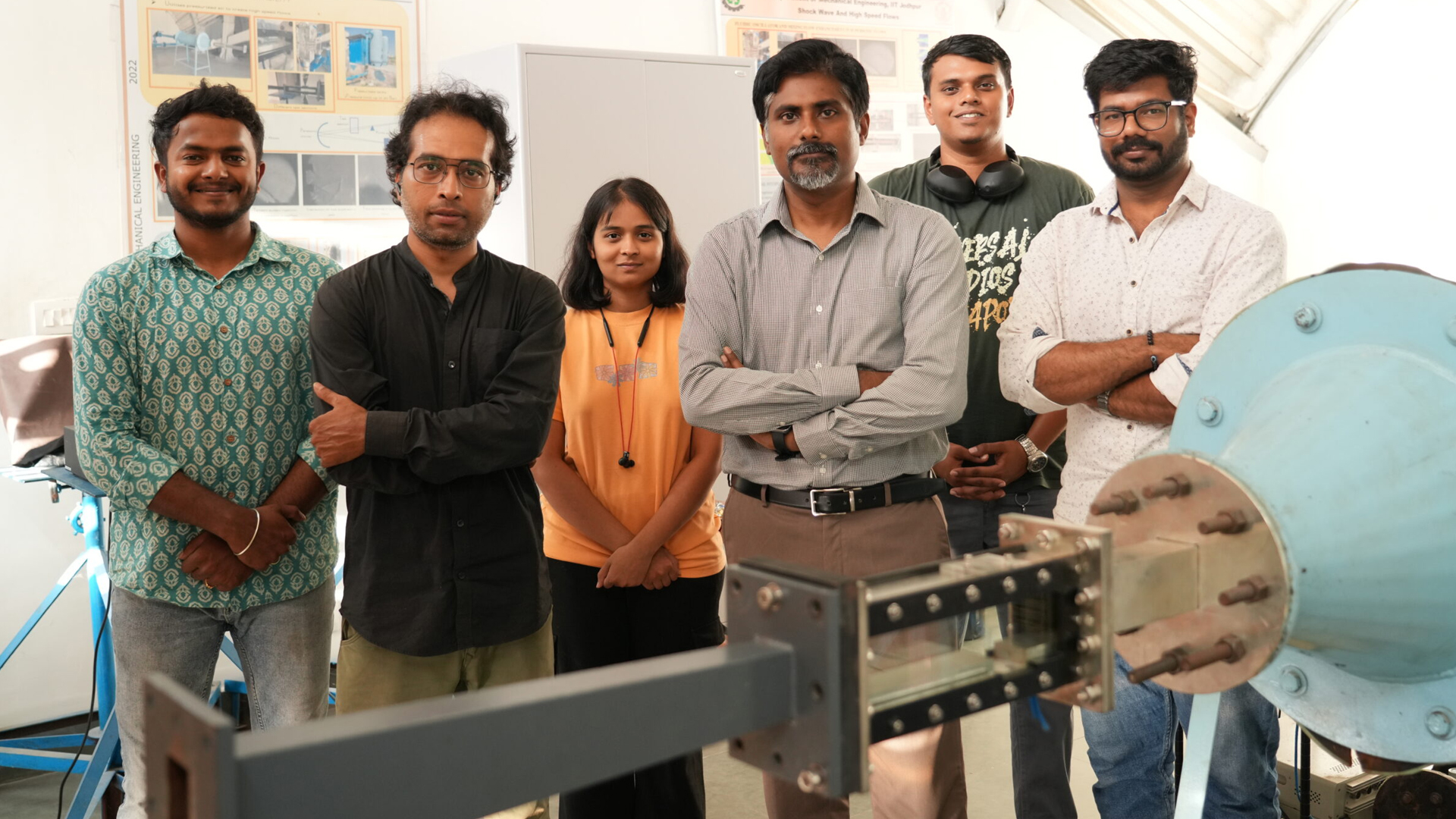Researchers at the Indian Institute of Technology (IIT) Jodhpur are making significant progress in hypersonic propulsion, sustainable water and cooling technologies, reusable rocket landings, and blast protection, with broad implications for aerospace, defense, and public safety.
Leading the initiatives is Dr. Arun Kumar, Associate Professor in the Department of Mechanical Engineering and a faculty member of the Space Science and Technology Interdisciplinary Research Division at IIT Jodhpur’s Shock Waves and High-Speed Flow (SWAHS) Lab.
The team is developing scramjet engines that extract oxygen directly from the atmosphere, eliminating the need for heavy onboard oxidizers. This innovation could make hypersonic flight—travel at speeds exceeding five times the speed of sound—more efficient and cost-effective. Supported by the Aeronautics Research and Development Board (ARDB) and DRDO, the research also contributes to India’s hypersonic cruise missile program.
Beyond defense applications, the lab is tackling sustainable water and cooling solutions. Using solar ejector-based technology, Dr. Kumar’s team has demonstrated a combined desalination and refrigeration system.
A lab-scale prototype has been tested successfully, promising simultaneous access to clean drinking water and cooling, particularly for water-scarce and energy-deficient regions of India. Funding for this project comes from the Anusandhan National Research Foundation (ANRF) and ARG.
IIT Jodhpur researchers are also studying retro-propulsion methods to enable reusable rocket landings. By analyzing the interaction between rocket exhaust and the atmosphere during descent, the team aims to reduce the cost of space missions, potentially enhancing India’s presence in the global space sector.
Additionally, the SWAHS Lab is developing advanced blast protection technologies. By employing layered materials and energy-absorbing fluids, the team seeks to mitigate the destructive effects of explosions, improving safety in both defense operations and civilian infrastructure.
Dr. Kumar emphasized the practical applications of the research: “Our work is about creating solutions for complex systems—from hypersonic defense technologies to clean water access and safer space exploration. These innovations showcase India’s potential to lead in global technology while addressing real-world challenges.”
The research at IIT Jodhpur highlights the institute’s growing role in pioneering technological advancements with applications spanning national defense, aerospace, sustainability, and public safety. By integrating cutting-edge science into practical solutions, the institute demonstrates how research in India’s heartland can have global significance.
Also Read: Two Terrorists Killed in Kupwara, Kashmir LoC Foiled Infiltration






